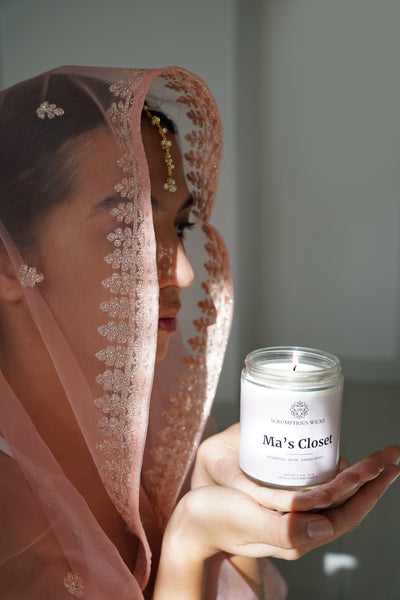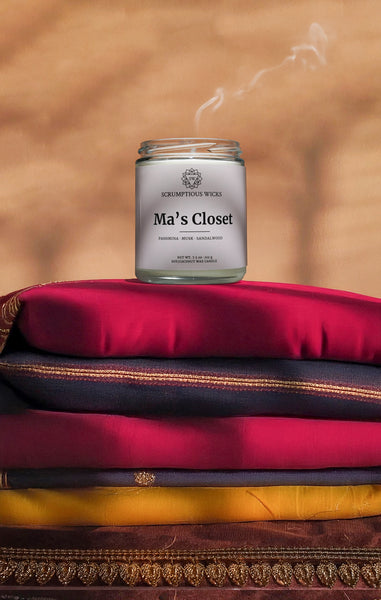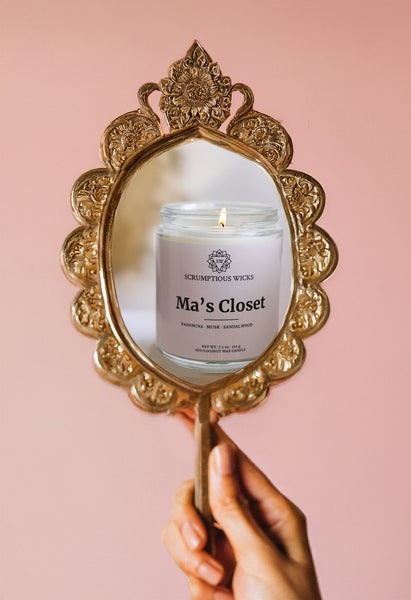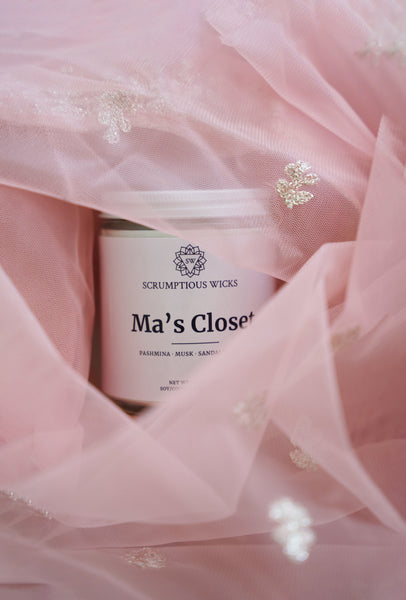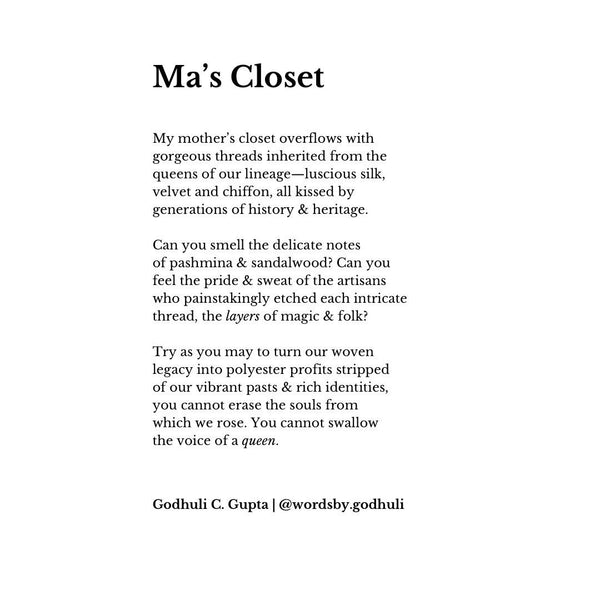Ma's Closet - Limited Edition Candle
Our "Ma's Closet" candle evokes the comforting embrace of generations past. This exquisite scent weaves together the softness of pashmina, the grounding essence of sandalwood, and the subtle, lingering touch of musk.
Imagine opening a cherished closet, filled with the treasured garments and dupattas passed down through South Asian mothers and grandmothers. "Ma's Closet" captures that very essence – the delicate fragrance that clings to these precious textiles, whispering stories of love, tradition, and enduring connection.
Light "Ma's Closet" to fill your home with a sense of warmth and nostalgia, a beautiful tribute to the matriarchs who have shaped our lives. It's more than just a candle; it's a fragrant reminder of heritage, a comforting presence, and the enduring love that binds families together.
Details:
- Glass jar with white metal lid
- White glossy gift box
- Net wt. 7.5 oz
- Hand-poured in small batches
- All natural soy/coconut wax & lead-free wicks
- Phthalate-free and paraben-free fragrances
- Burn time: approx 50-60 hours
This candle also features a poem written by the talented, Godhuli Chatterjee Gupta.
Godhuli is a Chicago-based Indian-American writer and the author of Desert Marigold, an Amazon bestselling poetry collection. Her work explores the trials of motherhood, the South Asian immigrant experience, cultural duality, and the process of reclaiming identity. A former "third culture kid" who grew up in six countries, Godhuli brings a rich, global perspective to her writing -- infusing every line with deep emotional resonance.
Now a mother of two raising her family in the Chicago suburbs, she continues to share her journey through poetry that speaks to the heart.
A portion of all proceeds from the sale of this candle will be donated to the South Asian American Digital Archive (SAADA)
"SAADA creates a more inclusive society by giving voice to South Asian Americans through documenting, preserving, and sharing stories that represent their unique and diverse experiences. We envision American and world histories that fully acknowledge the importance of immigrants and ethnic communities in the past, strengthen such communities in the present, and inspire discussion about their role in the future."






